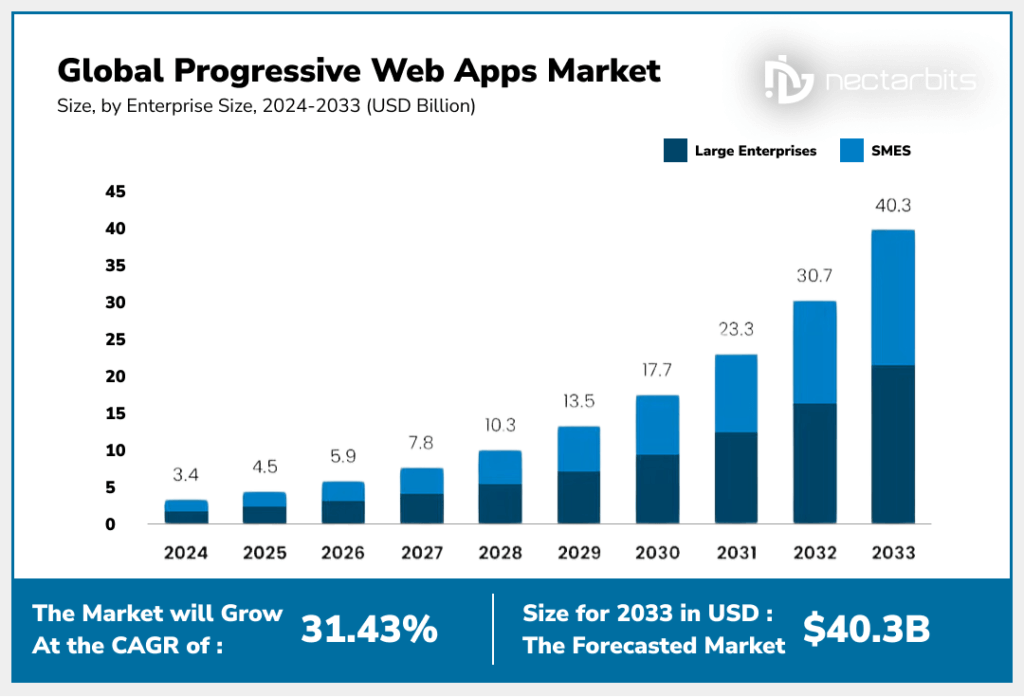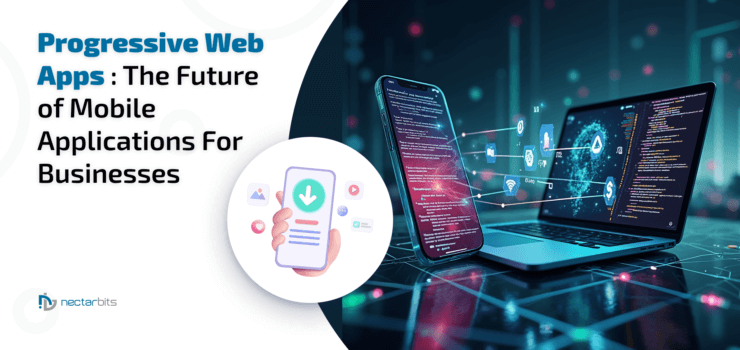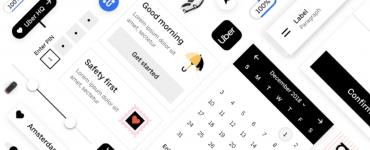Progressive Web Apps (PWAs) represent a transformative approach to application development, blending the best of web and mobile app technologies. They offer a seamless, responsive, and high-performance experience, meeting the evolving demands of modern users and businesses alike. This blog delves into why Progressive Web App Development is reshaping mobile application landscapes, supported by data, detailed comparisons, and insights.
What Are Progressive Web Apps?
PWAs are web-based apps that work & feel like regular native mobile device apps. They’re built with modern web technologies, they’re responsive and secure across devices, and you don’t need to download them from app stores. Custom PWA Development Solutions helps businesses keep up with user engagement, reduce bounce rates, and get more mileage.
Key Features of PWAs
- Offline Functionality: For PWA, service workers are used to achieve offline access so that there will be no interruption.
- Cross-platform Compatibility: It uses the same set of codebases to cover multiple devices, allowing the development of Cross-platform Progressive Web Apps to minimize development costs.
- Improved Performance: Caching is optimized to make your site load faster and for smoother interactions.
- App-like Experience: PWAs have features like push notifications and home screen installation which mirror the user-friendliness of native apps.
Why Progressive Web Apps Are the Future

1. Enhanced Mobile Application Experience Design
We’ve seen a shift in user expectations to expect fast, reliable, engaging digital experiences. Brought together with mobile app development functionality, PWAs excel in Mobile Application Experience Design. For businesses, they can increase conversions by up to 36%.
2. Cost-Effective Development
Progressive Web App Development is an easier way to develop an app than native apps, saving you the resources necessary for developing platform-specific versions. With one development process, a business can have a universal app with the same functionality across all devices.
3. Accessibility and SEO Benefits
Because PWAs are all based on the web, they are found through search engines too. More and more companies provide Expert PWA Development Services whose products or services have improved accessibility and they experience a rise in traffic and user retention rates.

Benefits of PWAs: A Detailed Comparison
| Feature | PWAs | Native Apps |
| Installation Process | Instant, via browser | App store download required |
| Development Cost | Lower, single codebase | Higher, separate for each platform |
| Offline Access | Supported | Supported |
| SEO Discoverability | Yes | No |
| Update Mechanism | Automatic | Requires user action |
| Cross-platform Compatibility | Built-in | Requires separate versions |
Market Trends and Statistical Insights on Progressive Web Apps
Businesses are increasingly adopting Progressive Web Apps (PWAs) due to the obvious benefits to user engagement and professional web development costs. To follow on from this we present a comprehensive analysis of current market trends driven by statistical data and show how the impact these PWA’s have on the sector is growing.
1. Market Growth and Adoption
- A study by Google notes that businesses who embraced PWA’s saw a 68% increase in mobile traffic, making the value of PWA’s in web engagement clear.
- According to reports from Statista, the PWA market will thrive rapidly, and the global web app market will experience a CAGR of 9.7% in the forecast period 2023-2030 to reach a valuation of $10.44 billion by the end of the forecast period.
- Large-scale adopters like Twitter, Alibaba, and Starbucks have reported measurable improvements in key performance metrics after switching to PWAs:
- Using Twitter Lite reduced tweet bounce rates by 20% and tweets sent by 75%.
- This jumped Alibaba’s conversions on its web platform by 76%.
2. User Behavior Insights
- With smartphone penetration exceeding 6.92 billion users globally in 2023, the demand for faster, more accessible apps is evident
- According to a ComScore study, users spend 87 percent of their mobile time in apps, versus web browsers. The catch is that PWAs bridge this gap by following the accessibility of the web but the engagement levels of native apps.
- According to Apptimize data, businesses with PWAs see between 30 percent higher user retention rates than those that use traditional mobile apps.
3. Performance Metrics of PWAs
| Metric | Improvement Observed | Example |
| Page Load Speed | Up to 2x faster | Starbucks PWA |
| Conversion Rates | 20%-76% increase | AliExpress PWA |
| User Engagement | 40%-60% higher | Pinterest PWA |
| Data Consumption | 25%-80% lower | Uber and Tinder PWAs |
These metrics emphasize the efficiency and cost savings PWAs offer businesses while significantly enhancing the user experience.
Read More:- Best Technology Stack for Web Applications: A Complete Guide
4. Industry-Specific Adoption
Several industries are adopting PWAs to address unique challenges:
- E-commerce: Custom PWA Development Solutions are enabling online retailers to deliver a cross-device shopping experience. In a great e-commerce solution development example, Flipkart Lite, a PWA, saw a 70% increase in conversion rates.
. - Travel and Hospitality: Trivagio and other PWA built sites reduce their load time to under 3 seconds, which means higher bookings and user satisfaction.
- Media and Entertainment: PWAs are used by platforms like Forbes and Spotify to keep users engaged, and Forbes has a 43 percent rise in sessions per user.
5. Cost Efficiency and ROI
- Progressive Web Apps on Cross platform can save as much as 33% to 50% compared to native apps for iOS and Android.
- When business migrates from traditional apps to PWAs, the return on investment happens within 6 to 12 months due to decreased maintenance costs and increased user engagement.
How PWAs Compare to Traditional Apps
| Criteria | PWAs | Traditional Web Apps |
| Device Adaptability | High | Limited |
| Installation | Optional | Not applicable |
| Performance | Superior | Moderate |
| User Engagement | Higher | Lower |
Challenges Addressed by PWAs
- Seamless Mobile App User Experience: PWAs make sure of a Smooth Mobile App Experience, by making sure users don’t get disappointed when the App performs Slowly, or often Crashes.
- Intuitive App Interface Solutions: PWA emphasizes usability, features minimalistic and flexible Intuitive App Interface Solution, lowers friction of the user’s journey.
Future Trends in PWA Development
- AI Integration: Expect intelligent features like personalized recommendations.
- IoT Support: Connected devices will gain PWA functionality.
- Voice Search Optimization: PWAs in the future will become more susceptible to voice-activated commands.
Conclusion
The rise of Progressive Web App Development marks a significant shift in how businesses approach mobile user experiences. With their cost-efficiency, superior performance, and universal accessibility, PWAs are not just an alternative but the definitive solution for modern app development.
For businesses ready to lead in digital innovation, investing in Custom PWA Development Solutions and partnering with providers of Expert PWA Development Services will ensure a competitive edge in delivering unparalleled user experiences.
Contact professional experts like Nectarbits to ensure the strategic development of your own Progressive Web App solution.
Frequently Asked Questions (FAQs)
Progressive Web Apps (PWAs) are web-based applications designed to deliver a seamless, app-like experience across devices. They combine the flexibility of the web with the engaging features of native apps.
-Built with modern web technologies like HTML, CSS, and JavaScript
-Accessible directly from browsers—no app store downloads required
-Provide offline functionality and push notifications
By choosing Custom PWA Development Solutions, businesses can enhance user engagement and achieve higher retention rates.
PWAs are designed with an emphasis on Mobile Application Experience Design, ensuring fast, smooth, and reliable interactions.
-Offer offline access using service workers
-Enhance performance with optimized caching mechanisms
-Enable cross-platform compatibility with a single codebase
This focus on usability provides users with an intuitive app interface solution, reducing friction and boosting satisfaction.
Unlike native apps, Progressive Web App Development involves creating a single codebase, significantly reducing development costs.
-Eliminates the need for separate iOS and Android versions
-Reduces maintenance and update expenses
-Increases ROI within 6–12 months for most businesses
With Expert PWA Development Services, you can maximize your budget while delivering a premium app experience.
Industries like e-commerce, travel, and media are increasingly adopting PWAs for their ability to deliver a seamless mobile app user experience.
–E-commerce: Boosts conversions and reduces bounce rates
-Travel: Faster booking times and improved satisfaction
–Media: Higher user engagement and session durations
Investing in Cross-platform Progressive Web Apps can provide your business with a competitive edge.
PWAs outperform traditional apps in performance, accessibility, and adaptability.
-Require no installation—instant access via browser
-Support SEO discoverability for higher web traffic
-Offer automatic updates without user intervention
Switching to PWAs ensures faster performance and an app-like feel, making them a smart choice for modern businesses.








